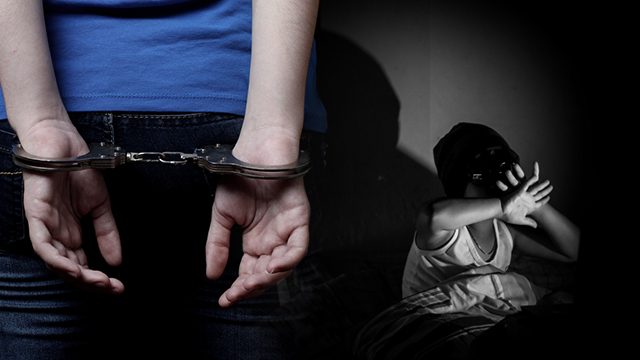SUMMARY
This is AI generated summarization, which may have errors. For context, always refer to the full article.

MANILA, Philippines – Congress is tackling another set of bills filed that seek to raise the minimum age of sexual consent from 12 years old.
In the eyes of the law since 1997, children aged 12 and above are seen as old enough to give sexual consent. This age is the lowest in Southeast Asia and one of the lowest in the world. (READ: [Dash of SAS] 12 vs. 18: The age of consent)
Lacking definitions
A provision in the Anti-Rape Law mentions “any physical overt act of manifesting resistance” as a form of evidence for lack of consent. GABRIELA Representative Arlene Brosas said that not all forms of non-consent are expressed in physical resistance.
“We need to recognize that the lack of consent does not revolve around resistance. There are some victims that freeze… The absence of consent and the ability to give consent has to be the central element,” said Brosas.
Representative Argel Cabatbat also suggested to penalize grooming of a child under the pending bills, since it is recognized under anti-child pornography laws. Grooming refers to preparing a child for sexual activity.
The current law also has a “forgiveness clause,” which absolves an accused rapist from criminal action if the accused and victim get married. The proposed bills aim to repeal this clause as well.
Right to sexual exploration
While the lawmakers and resource persons agreed that the age of consent must be raised, the exact age was met with scrutiny in order to cater to both needs of protecting children from exploitation, and respecting the youth’s right to sexual exploration.
The Chief Public Attorney herself, Persida Acosta, was present at the hearing because she felt strongly about the volume of rape cases that public lawyers deal with.
“Sa mga cases sa Public Attorney’s Office, 80% of the cases are below 18 years old. Napakahirap makakuha ng conviction sa korte para sa rape victim,” said Acosta.
(In the cases at the Public Attorney’s Office, 80% of the cases are below 18 years old. It’s very difficult to get a conviction in court for a rape victim.)
Acosta said she is for the minimum age of consent at 18, while also acknowledging that people at this age are still in a vulnerable state for abuse.
Unicef Child Protection specialist Marj Ardivilla said that the age of 16 is the recommendation of Unicef and the Child Rights Network as it is the age at the “balance of interests.” She said that there is a possibility of abuse of the law if the minimum age is set too high, noting the evolving capacity of the youth to explore sexuality.
Representatives Lawrence Fortun and Yedda Romualdez said the committees are open to a “sweetheart clause” which acknowledges consensual sex between teens and young people, but that the discernment of the age gap must be “very careful.”
Acosta, however, said that a sweetheart clause may also be problematic because it is a common alibi for a rapist to say that they are in a relationship with the victim.
Ardivilla said that in determining the right age, there must be an emphasis on data. She said that violence data in the Philippines is problematic, since rape cases are sometimes listed instead as acts of lasciviousness.
The committees on revision of laws and welfare of children requested data from the Department of Social Welfare and Development to submit data that would indicate the best minimum age.
Senator Risa Hontiveros filed a similar measure to raise the age of sexual consent in the Senate.
Data from the National Baseline Study on Violence Against Children in 2015 said that one in 5 Filipino children aged 13 to below 18 have experienced sexual violence. The study found that family members are often the perpetrators. (READ: Rape within the family: The Philippines’ silent incest problem)
The rising number of pregnancies occurring among children aged 10-14 may also be linked to an element of abuse, according to the Commission on Population and Development. – Rappler.com
Add a comment
How does this make you feel?





There are no comments yet. Add your comment to start the conversation.